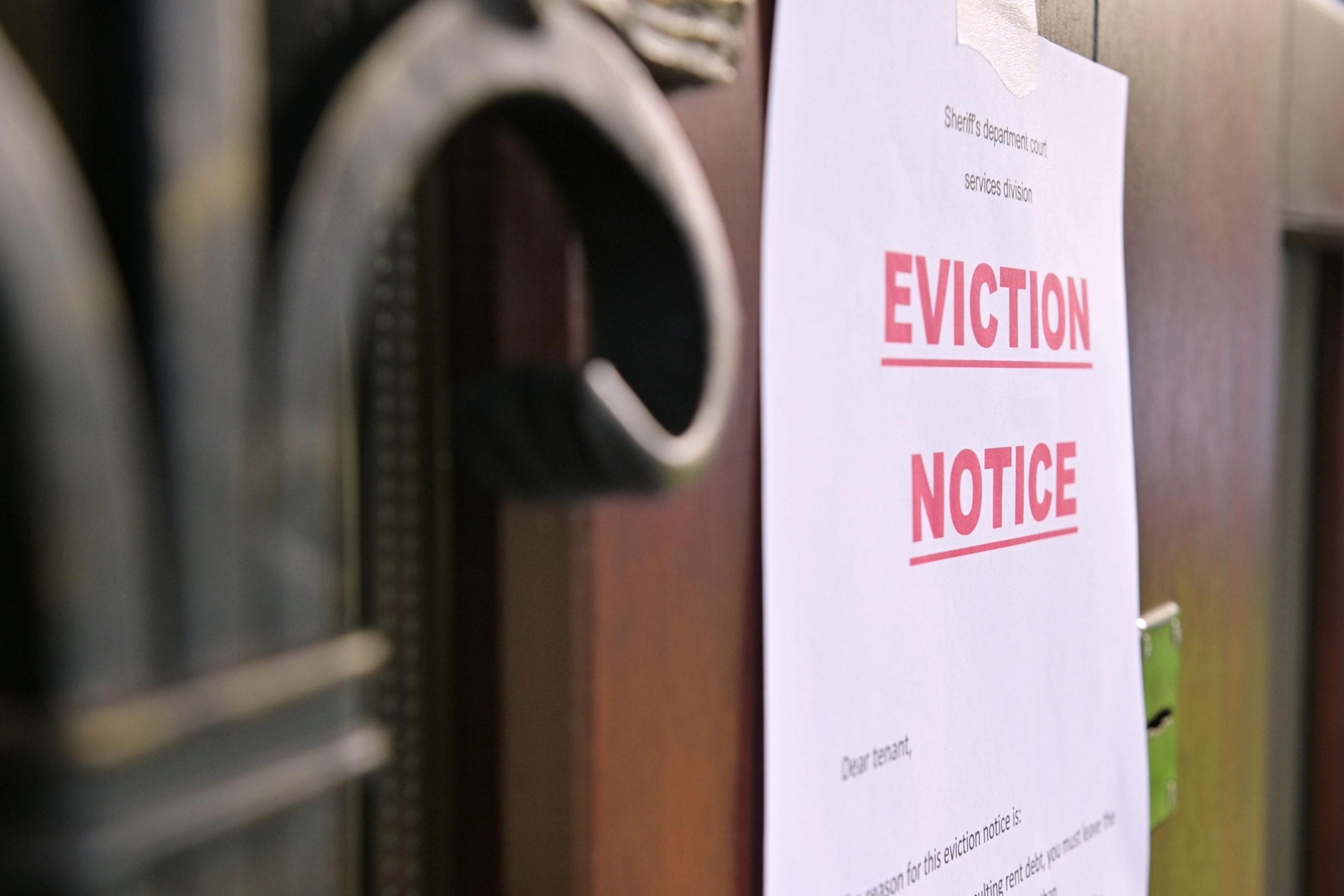Waiting for a ‘Tsunami’: COVID-19 Making Housing Instability Worse
Julie Bitely
| 5 min read

Without an influx of federal or state financial aid, experts fear that a ripple effect related to job and income loss caused by the COVID-19 pandemic will increase evictions and foreclosures in 2021, exacerbating housing instability and homelessness. It’s estimated that 30-40 million people in the U.S. are at risk of eviction because they simply can’t pay the rent. Consequently, landlords also face the risk of foreclosure on properties they own but can’t afford without rental income. Families and individuals are also struggling to make mortgage payments, putting them at risk for foreclosure. “The economic pressures are there because the sources of supplemental funding have gone away compared to where they were,” explained Eric Hufnagel, executive director, Michigan Coalition Against Homelessness, referencing supplemental unemployment insurance payments available toward the beginning of the pandemic that have now expired. “We’re waiting for the tsunami to take place.” “We anticipate seeing an increase in people experiencing homelessness next year,” agreed Catherine Distelrath, CAM manager, Housing Resource Center, Southwest Counseling Solutions in Detroit. Distelrath’s agency serves as the Housing Assessment and Resource Agency for Detroit, Hamtramck and Highland Park. Every county in Michigan has a HARA, which serves as a first point of contact for people currently experiencing homelessness or for those on the brink.
Housing affordability continues to be driving factor
Long before the pandemic hit, many low-wage workers in Michigan and across the country struggled to afford housing. In the past four decades, real hourly wages grew 1.6% for the lowest-wage workers, while real median gross rent increased by about 37% in the same time period, according to a report from the National Low-Income Housing Coalition. For families and individuals already on the brink, losing income due to lost hours or furloughs often means choosing to pay the rent or mortgage or putting dinner on the table, paying for medications or utilities. There is some help available to renters through CARES Act funding. The Michigan State Housing Development Authority is working with local HARA agencies to set up an eviction diversion program designed to disseminate $50 million in rental relief funds, although that money must be spent by December 30, 2020. Mortgage holders are advised to work with their financial institutions to establish a payment plan if they are behind.
Housing instability tied to COVID-19, other health concerns
Housing instability and homelessness are linked to a range of negative health outcomes. The Centers for Disease Control and Prevention actually announced a nationwide moratorium on evictions back in September that is set to expire at the end of the year. The order was issued “to prevent the spread of disease,” with the idea that those most vulnerable to COVID-19 would be far better able to protect their health by maintaining their housing. If a wave of evictions emerges in the next few months, both Hufnagel and Distelrath dread the consequences, particularly in light of the pandemic. People who lose their home might normally be able to turn to family for a place to stay but pre-existing conditions and fear of spreading the virus might make it more difficult to combine households temporarily. Homeless shelters, on the other hand, have had to limit the number of people they’re able to take in to help halt the spread of COVID-19, making it unlikely they could handle an influx of newly homeless people. Distelrath said shelters initially saw a decrease in people seeking help in March, April and May of this year but numbers have gone back up in recent months due to colder weather. Fortunately, she said the shelters she works with haven’t had major outbreaks of COVID-19 thanks to effective social distancing, safety and disinfecting protocols. In addition to these factors, mental health concerns abound for people at risk of losing their home. The stress of falling behind on payments is causing anxiety for many families. After the 2008 housing crisis, studies found that people who were evicted were four times more likely to die by suicide. The lack of stability that results from losing a home can also be very traumatic for children. Early childhood trauma has been linked to long-term health consequences for kids, which Hufnagel finds particularly troubling. Helping all people secure safe, affordable housing is a moral imperative in his view and one that protects society from bigger societal problems down the road. “What is our responsibility as a society,” he asked. “It should be to try to eliminate those things that may deeply inhibit the trajectory of kids going forward.”
Finding housing help
In Michigan, people in need of housing help should first contact their county’s housing assessment and referral agency (HARA). A housing resource specialist can work with individuals and families to not only find immediate shelter but to also determine if they are eligible for additional supportive services such as food assistance or job training.
- Learn more about how housing instability and homelessness negatively impact health outcomes.
- Take a look at what homelessness looks like in Michigan’s Upper Peninsula.
Editor's Note: This is one story in part of a year-long blog series. Blue Cross Blue Shield of Michigan journalists will be diving into some of the environmental and socio-economic reasons behind disparate health outcomes for certain groups of people. While there is no one answer or simple solution to resolving these complex issues, we’ll talk to community organizations working to address social determinants of health in neighborhoods and communities across Michigan, as well as highlight work that Blue Cross is doing to contribute to solutions for the health of all Michiganders. Related:
- Understanding Social Determinants of Health in Michigan
- Understanding Food Insecurity
- Food Insecurity Increasing Due to COVID-19
Photo credit: Getty Images





